That thick, sticky feeling in your chest… the wheezing, coughing, and shallow breaths is not just frustrating; it’s exhausting.
Mucus buildup can trap you in a cycle of discomfort, especially when it lingers after colds, allergies, or respiratory infections. You want relief, but you also want it to be gentle, natural, and kind to your lungs.
I know the feeling all too well. I’ve spent many nights sipping teas, trying steam, and researching remedies, looking for anything to help me breathe deeply again.
The turning point? Herbal allies. These ancient plant remedies don’t just soothe symptoms; they go to work helping your lungs do what they’re designed to do: breathe freely.
This guide will share the top herbs that help break up, loosen, and flush out stubborn mucus from the lungs. They’ve been used in traditional healing for centuries, and now, science is catching up. Ready to find your favorite? Let’s begin.
1. Thyme (Thymus vulgaris)
Thyme is more than just a kitchen herb; it’s a powerful ally in fighting mucus buildup. This herb is known for its expectorant properties, meaning it helps to loosen and expel mucus from the lungs.
A study published in the Journal of Clinical Pharmacy and Therapeutics demonstrated that thyme has a significant effect on easing symptoms of respiratory issues like coughs and bronchitis.
How to Use:
Make a soothing thyme tea by steeping 1-2 teaspoons of dried thyme in boiling water for 10 minutes. Drink 2-3 cups per day, especially during the evening, to help clear mucus and relax your airways.
Why It Works:
The compounds in thyme, such as thymol, work as natural decongestants, promoting the elimination of mucus while easing coughing and congestion.
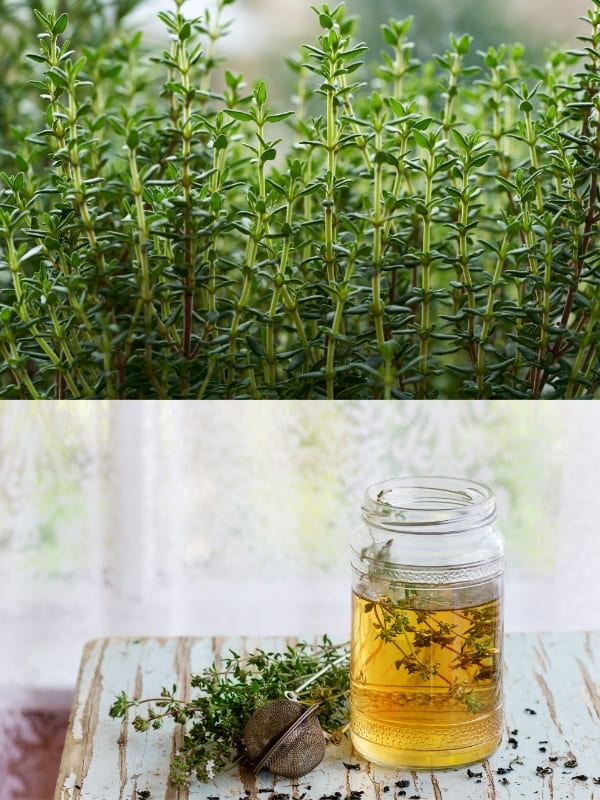
2. Mullein (Verbascum thapsus)
Mullein is a powerhouse herb when it comes to lung health and clearing mucus. Known for its soothing effects on the respiratory tract, mullein acts as a natural expectorant, helping the body clear mucus from the lungs.
A study published in Phytotherapy Research highlighted mullein’s effectiveness in treating coughs and chest congestion.
How to Use:
Prepare mullein tea by steeping 1 teaspoon of dried mullein flowers in hot water for 10-15 minutes. Drink it 2-3 times a day for effective mucus relief.
Why It Works:
Mullein contains saponins, which help the body break down mucus while also offering anti-inflammatory properties to soothe irritation in the lungs.
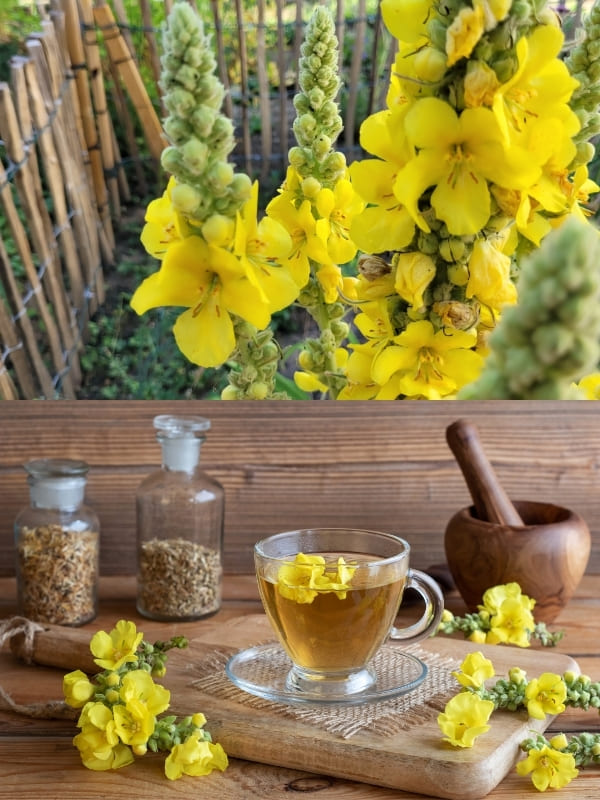
3. Licorice Root (Glycyrrhiza glabra)
Licorice root has long been used in traditional medicine for respiratory health. It’s known for its soothing properties and ability to clear mucus from the lungs.
A study in BMC Complementary Medicine and Therapies found that licorice has expectorant effects, helping to clear the airways and reduce the thickness of mucus.
How to Use:
Make licorice root tea by steeping 1-2 teaspoons of dried root in hot water for 10-15 minutes. You can drink this tea 1-2 times a day.
Why It Works:
Glycyrrhizin, the active compound in licorice, has natural anti-inflammatory and expectorant properties that reduce mucus and soothe irritated airways.
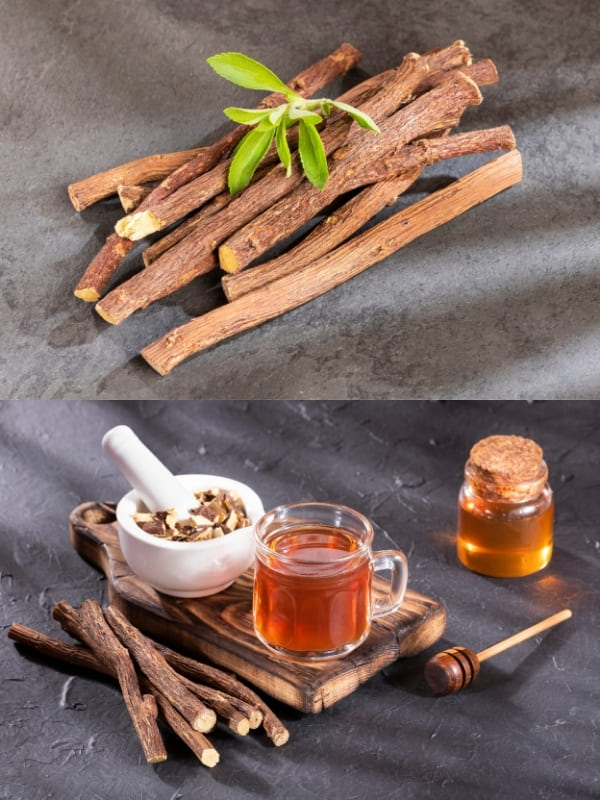
4. Eucalyptus (Eucalyptus globulus)
Eucalyptus is commonly used in oils and ointments, but it’s also a fantastic herb for clearing mucus from the lungs. The active compound eucalyptol in eucalyptus has been shown to reduce mucus production and open up the airways.
Research published in the Journal of Ethnopharmacology supports eucalyptus oil’s ability to ease respiratory conditions.
How to Use:
Inhale eucalyptus steam by adding a few drops of eucalyptus oil to a bowl of hot water. Place a towel over your head and inhale the steam for 5-10 minutes. Alternatively, use eucalyptus oil in a diffuser to clear your airways.
Why It Works:
Eucalyptol has antimicrobial properties and helps to break down mucus in the chest, making it easier to expel while soothing the respiratory system.
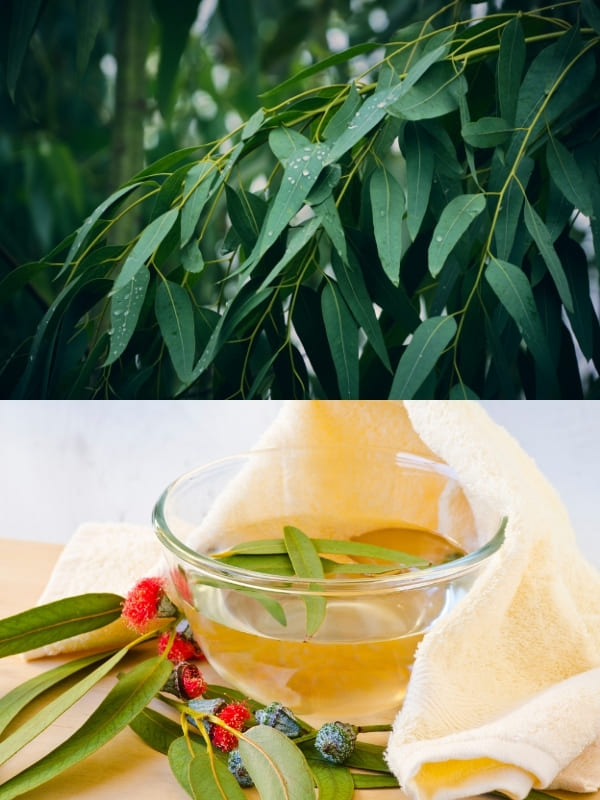
5. Ginger (Zingiber officinale)
Ginger isn’t just for soothing stomach issues it’s also a fantastic herb for clearing mucus from the lungs. Known for its anti-inflammatory and expectorant properties, ginger helps to loosen mucus and support the body’s natural ability to expel it.
A 2013 study in The Journal of Alternative and Complementary Medicine confirmed ginger’s effectiveness in respiratory health.
How to Use:
Brew fresh ginger tea by steeping thin slices of ginger in boiling water for 10 minutes. Drink it 2-3 times a day to help loosen mucus.
Why It Works:
Ginger contains gingerol, which has powerful anti-inflammatory properties that help to reduce swelling and break down mucus in the lungs.
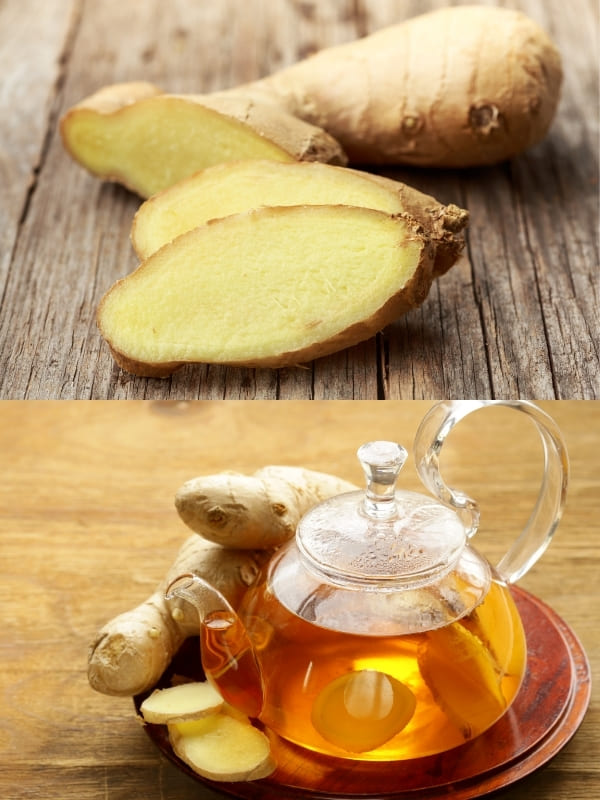
6. Peppermint (Mentha piperita)
Peppermint is known for its cooling and soothing effects on the body, especially in the respiratory system. The active compound menthol found in peppermint helps to thin mucus, making it easier to expel.
Research published in Frontiers in Pharmacology has shown peppermint’s ability to clear nasal passages and ease chest congestion.
How to Use:
Drink peppermint tea or inhale peppermint steam by adding a few drops of peppermint oil to hot water. You can also use a diffuser for continuous relief.
Why It Works:
Menthol works as a natural decongestant, loosening mucus and easing the discomfort caused by congestion. It also has a cooling effect that helps reduce inflammation in the lungs.
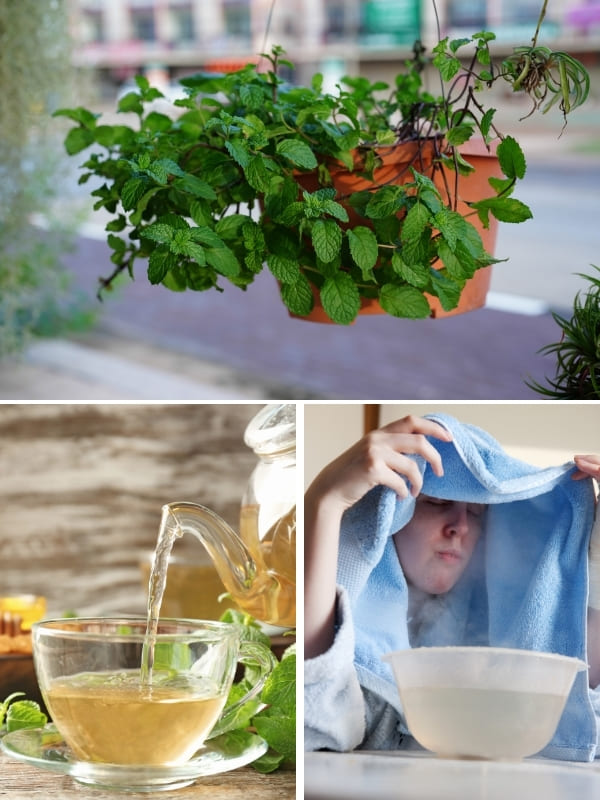
7. Marshmallow Root (Althaea officinalis)
Marshmallow root is a gentle herb known for its ability to soothe irritated mucous membranes in the lungs.
It forms a gel-like substance when mixed with water, which can coat the throat and respiratory tract, reducing inflammation and helping to clear mucus.
A study in The Journal of Ethnopharmacology confirmed marshmallow root’s effectiveness in treating coughs and throat irritation.
How to Use:
To make marshmallow root tea, steep 1 teaspoon of dried root in boiling water for 10-15 minutes. Drink this tea up to 2-3 times a day for best results.
Why It Works:
The mucilage in marshmallow root helps to coat and soothe the irritated tissues in the lungs and throat, reducing the irritation caused by excessive mucus.
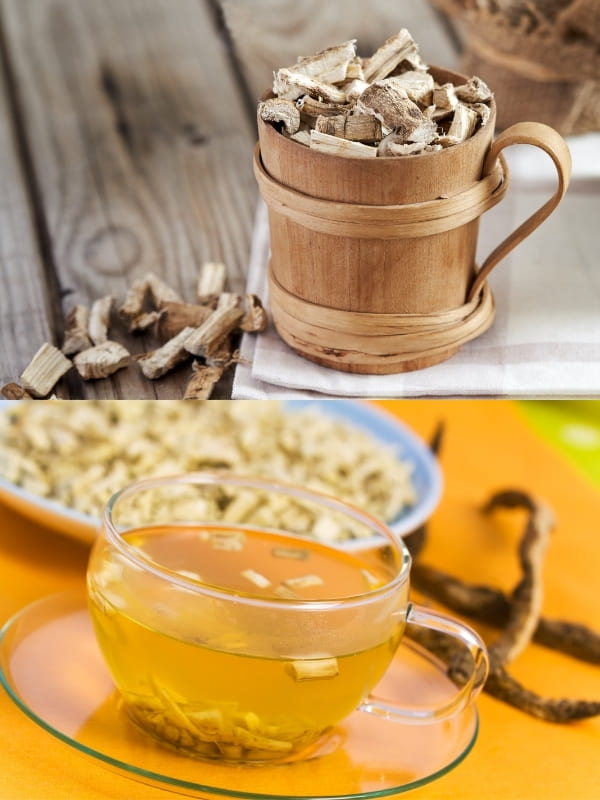
3 Herbal Tea Blends to Clear Lungs and Breathe Easy
Here are three comforting blends to make lung-clearing part of your daily ritual. Each is easy to prepare and feels like a warm, healing breath.
1. Clear and Calm Tea Blend
Ingredients: 1 tsp thyme, 1 tsp mullein, ½ tsp ginger
Instructions: Steep in hot water for 10 minutes. Strain and sip warm.
Best For: Breaking up mucus while calming coughs.
2. Sweet Soothe Tea Blend
Ingredients: 1 tsp marshmallow root, ½ tsp licorice root, ½ tsp peppermint
Instructions: Steep for 15 minutes, strain well.
Best For: Throat irritation, persistent tickling coughs.
3. Deep Breath Detox Tea
Ingredients: 1 tsp elecampane root, ½ tsp oregano, 1 tsp honey (optional)
Instructions: Simmer elecampane for 15 minutes, then steep oregano for 5 more.
Best For: Thick, chronic mucus and lung cleansing.
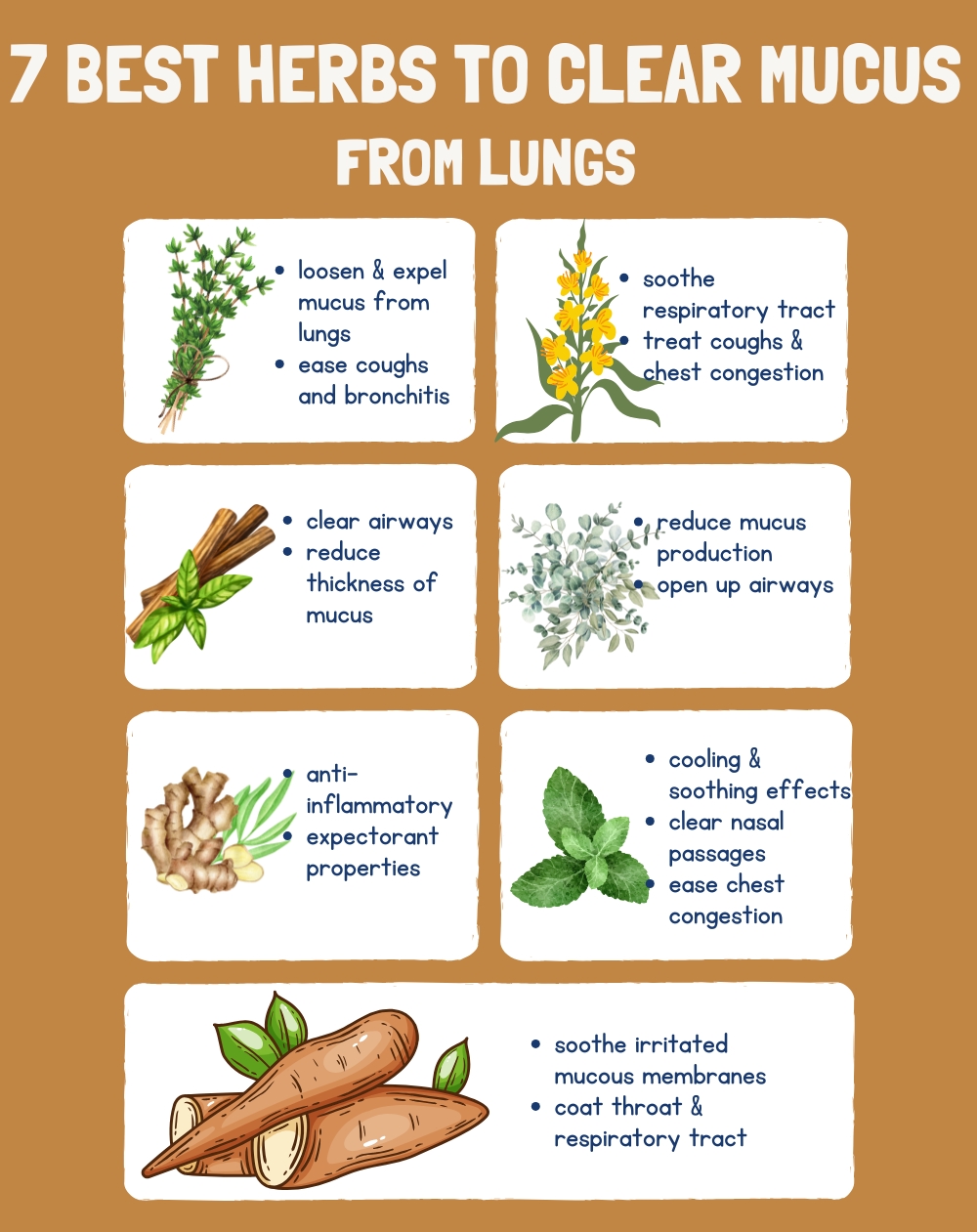
How to Incorporate These Herbs into Your Daily Routine
Start with 1–2 herbs that suit your symptoms. Enjoy warm herbal teas throughout the day. Use steam inhalations in the morning or evening.
Over time, consistency with these natural methods can make a noticeable difference in how you breathe, feel, and sleep.
Give your body time to respond; herbs work in harmony with your system, not against it.
Cautions and Precautions
Natural doesn’t always mean harmless. Some herbs like licorice or oregano oil may interact with medications or raise blood pressure.
If you’re pregnant, nursing, or taking medications, talk to a healthcare provider before using any new herbal remedy.
Always test in small amounts first to avoid allergic reactions.
Disclaimer
This article is for informational purposes only and is not intended to replace professional medical advice. Always consult with a healthcare provider before using any herbs, especially if you have existing health conditions or are on medications.
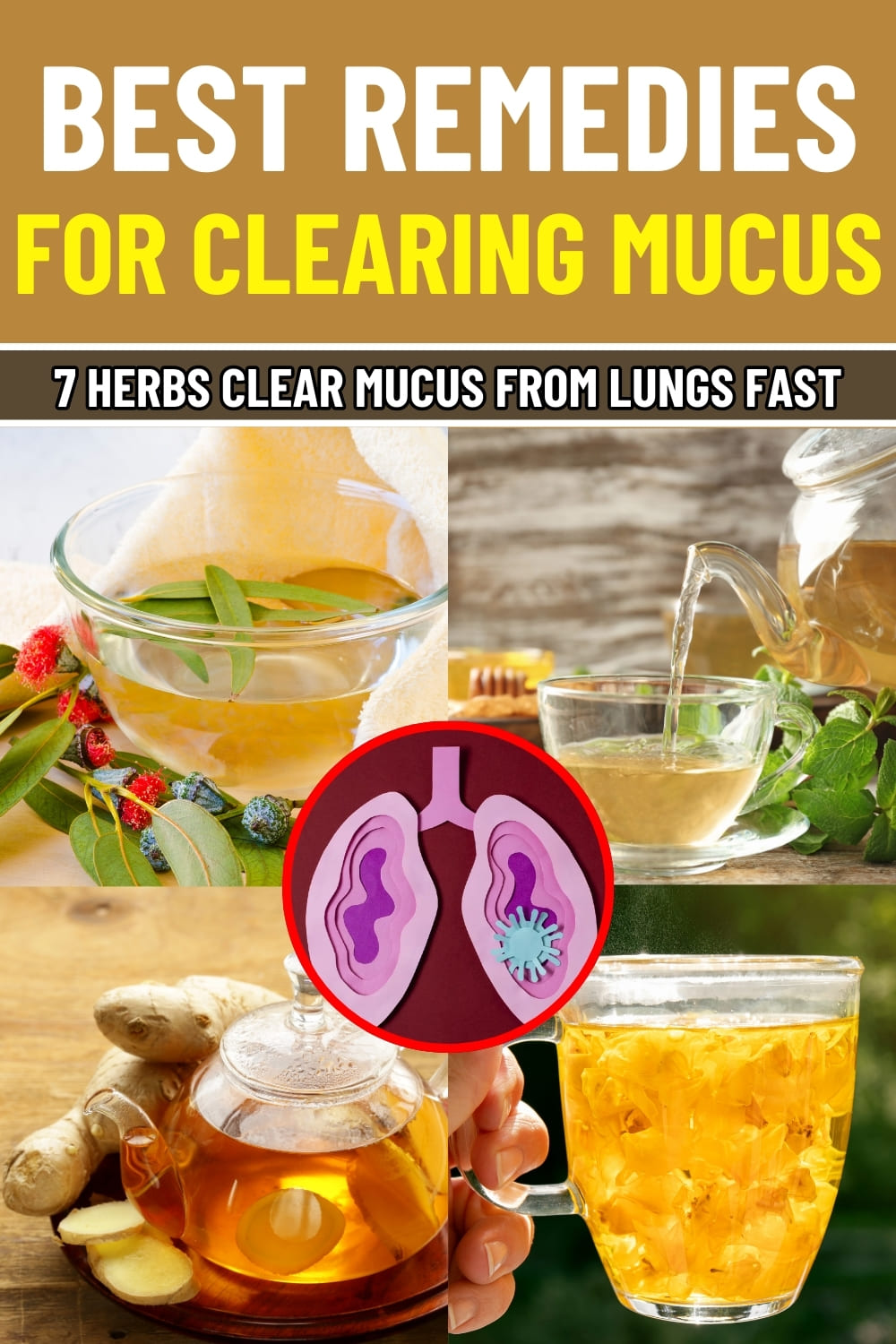
Top 7 Herbs to Clear Mucus from Lungs: Natural Relief You Can Trust
